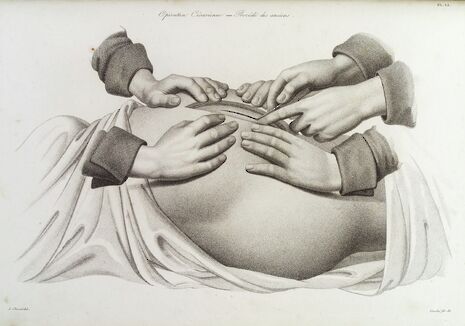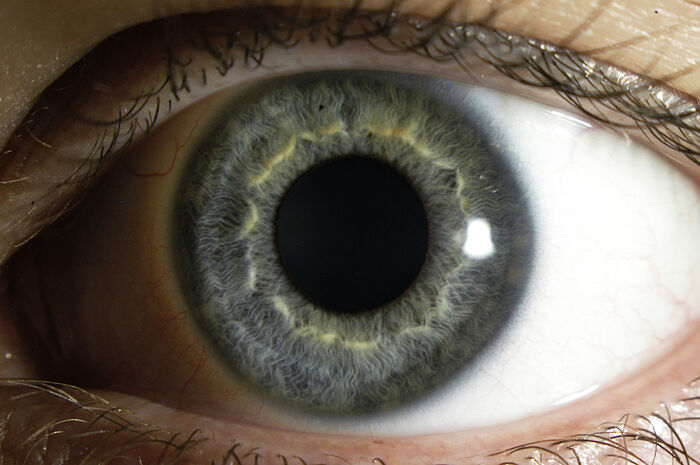Ectogenesis: a brave new world?
Joseph Krol reflects how Huxley’s novel may soon become a reality with the arrival of the artificial womb

When Brave New World was first published in 1931, the future that Huxley proposed must have seemed at best desperately implausible. His tale of a grimly hedonistic dystopia was so far from his reality: in place of a vision of an aimlessly saccharine world, utter nightmares were being foisted upon the European continent. Yet, almost a century on, his novel is proving more prescient than he could have imagined.
“The research has shown that we may be closer to Huxley’s vision than you might think”
One aspect of the novel, much remarked upon at the the time, is the notion of the artificial womb. In the book’s opening lines he describes the ‘Central London Hatchery and Conditioning Centre’, a great building wherein the people of this pallid Britain are all born. Scores of new students travel through the laboratories one after the other; we find industrial incubators, bottling rooms, even a ‘social predestination room’. The whole system is described as a great pinnacle in the development of society. Doctors go into histrionics as they describe its advantages. Yet there is something deeply ominous amongst this enthusiasm. From a single egg, it is said, ninety-six identical people could be produced, and soon set to work on ninety-six identical machines: “The principle of mass production at last applied to biology.” In this world, there is no room for individuality, no room for meaningful liberty; life has been reduced to a formality. Nevertheless, at the time, such existential horrors would have been thought of as a distant nightmare.
But science marches on. The idea of growing babies outside the womb, otherwise known as ectogenesis, is steadily emerging from the mire of fantasy and science-fiction. Earlier this year, a remarkable experiment succeeded in having several prematurely-born lambs grow in an artificial womb, in which time they were brought to full term; they grew their first coat of wool, they opened their eyes, they began to move quite deliberately. The implications are truly colossal.

Though this research has yet to be fully applied to humans, remarkable strides have been made in this area recently, centred on discoveries at Cambridge. Last year, a team led by Professor Magdalena Zernicka-Goetz allowed human embryos to mature for thirteen days amidst a mixture of chemicals, designed to replicate the conditions of the mother’s womb early in pregnancy. The study was forcibly cut short, since British law forbids the artificial maturation of a fertilised embryo beyond two weeks; many scientists are beginning to pressure the government into increase the permitted period, although profound ethical questions are numerous. In any case, the research has shown that we may be closer to Huxley’s vision than you might think.
Ectogenesis has a longer history than one might expect. The term itself was coined by British physiologist JBS Haldane in a lecture given to Cambridge’s Heretics Society in 1923; he predicted that by the 1960s, growing children in artificial wombs would be quite commonplace and by the 2070s a third of all newborns would be born ectogenetically. Haldane was writing with his tongue a fair distance into his cheek. It speaks volumes that he described his prediction as an excerpt from an essay by “a rather stupid undergraduate member of this University to his supervisor during his first term 150 years hence”. But given the speed of recent developments, one might think there is yet a lot of truth in it. And this underlines the urgency with which humankind must begin to deal with some of the most fundamental problems we face.
As we progress as a society, we are beginning to realise the magnitude of the social and philosophical problems these biological developments pose. From the practicalities of keeping foetuses alive outside the womb for months at a time, to the very question of what it means to be human, there remains much to be answered by the government, by Cambridge, and ultimately by every one of us. Ultimately, we must determine what of human nature we are willing to sacrifice at the nebulous altar of progress. I imagine the answer will drift toward an ever more extreme consensus as generations mature, as minds are reshaped as time marches on.
Yes, scientific development undoubtedly provides humankind’s best hope for ‘progress’ as a species, whatever that may be. Yes, it can certainly bring us countless benefits. But we must ensure that it remains the servant of humanity, rather than its master, as we enter into this brave new world
 News / University Council rescinds University Centre membership20 February 2026
News / University Council rescinds University Centre membership20 February 2026 News / Hundreds of Cambridge academics demand vote on fate of vet course20 February 2026
News / Hundreds of Cambridge academics demand vote on fate of vet course20 February 2026 News / Judge Business School advisor resigns over Epstein and Andrew links18 February 2026
News / Judge Business School advisor resigns over Epstein and Andrew links18 February 2026 News / Caius students fail to pass Pride flag proposal20 February 2026
News / Caius students fail to pass Pride flag proposal20 February 2026 News / Union cancels event with Sri Lankan politician after Tamil societies express ‘profound outrage’20 February 2026
News / Union cancels event with Sri Lankan politician after Tamil societies express ‘profound outrage’20 February 2026










